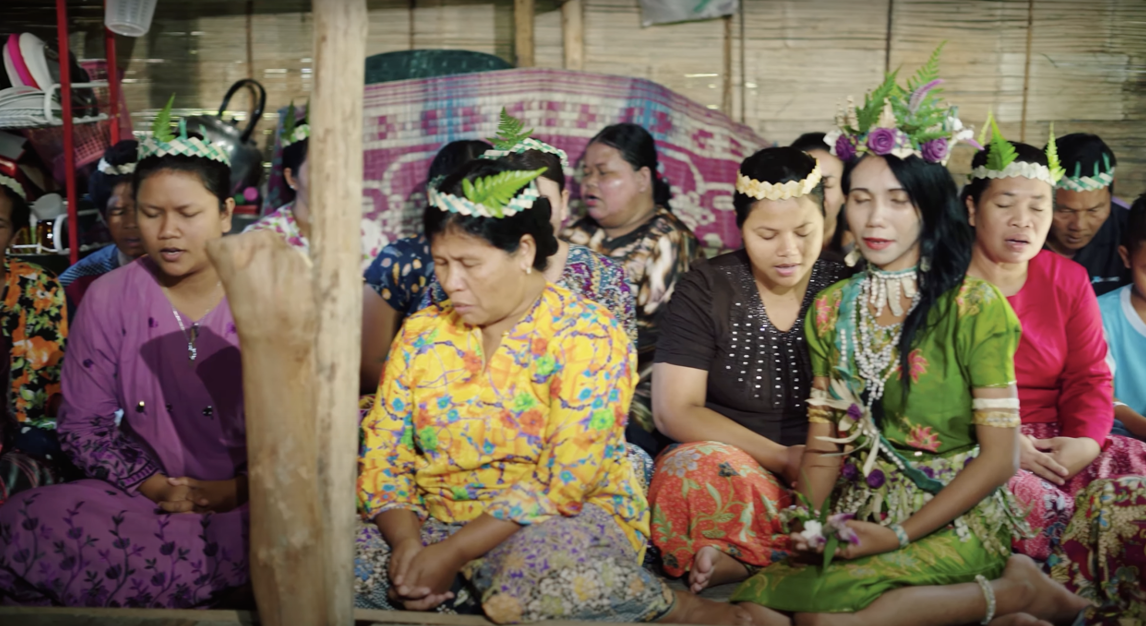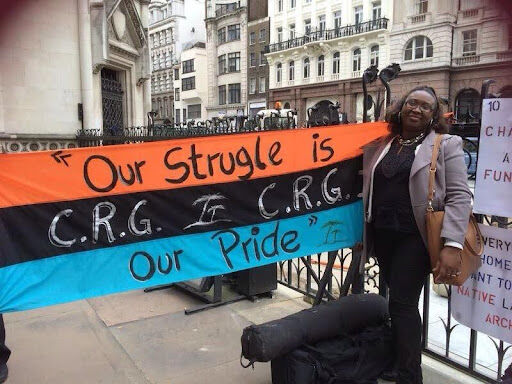25th Session of the UPR Working Group
Review of Sudan

United Nations - Geneva - 4 May 2016
The 25th session of the Universal Periodic Review working group (UPR) is taking place at the United Nations Offices in Geneva from 3 to 13 May 2016. During this second cycle of the UPR, the performance of Sudan towards its obligations in relation to human rights has been reviewed.
The Universal Periodic Review (UPR) is a unique process which involves an over all evalouation of the human rights records of all UN Member States. Under the auspices of the Human Rights Council, this exercise provides the opportunity for each State to declare what actions they have taken to improve the human rights situations in their countries and to fulfil their human rights obligations. As one of the main features of the Council, the UPR is designed to ensure equal treatment for every country when their human rights situations are assessed.
The review of Sudan opened with the presentation of the National Report submitted by the Sudanese delegation, headed by Minister of Justice of Sudan Mr Awad Elhassan Elnour Khalifa followed by an interactive dialogue with the UN member states.
National Report presentation
The session opened, as per usual procedure, with the presentation of the National Report submitted by the Sudanese delegation, headed by Minister of Justice of Sudan Mr Awad Elhassan Elnour Khalifa.
Mr Khalifa started by stating that the country is undergoing a continuous process of implementation and promotion of human rights according to its international commitments and according to the Bill of Rights contained in the Constitution, despite facing multiple challenges, especially resulted by the highly insecure environment.
The state of Sudan is aware that human rights can only be achieved through comprehensive national and international dialogue, through peace, unity, and democracy. To these extents, Mr Khalifa ensured that Sudan is in fact undergoing a process of democratization, which was reflected in the 2015 elections that, according to the delegate, were free and fair, as well as rather inclusive.
According to the delegation, Sudan is taking important steps in straightening the public prosecution structure and is undergoing amendments in order to comply with international law, including ratifying a series of UN Conventions on areas of human trafficking and smuggling, women’s representation and refugee protection.
Regarding social, economic and cultural rights, Mr Khalifa expressed the country’s efforts in addressing violations whereas they subsist. To highlight the improvements, the country made since the last UPR Review, the delegate mentioned, among others, the progress made in the health care system and related health insurance services, which are now accessible by a wider range of people and they cover a wider range of diseases and illnesses, including HIV.
Despite the achievements, the over two-decades-long unilateral coercive measures have put obstacles on human rights implementation, having a negative impact on areas of education, food and water access, health care and transportation. Another of the main issues that threaten Sudanese peace and security is the ongoing conflict in many areas of the countries.
The minister affirmed that it urges to settle such conflicts and comply with the Doha Peace Agreement ratified in 2011. He added, however, that many rebel groups are now joining the agreement.

Interactive Dialogue
During the Interactive Dialogue, the participant States had the chance to acknowledge the country’s efforts in addressing some human rights violations and appreciated the important steps taken in many areas, especially in that of human trafficking. At the same time they have had an opportunity to express their concerns in regards to many issues that still prevent civilians from fully enjoying their freedoms and rights, starting by the deteriorating security situation, especially in Darfur, Kurdofan and Blue Nile provinces, where widespread suffering, impoverishment and displacement of the population are taking place. On the top of an already very concerning situation, humanitarian assistance systematically lacks access to certain areas and it is not able to deliver aid to civilians in need. To these extents, many States called on the Sudanese government to grant access to all kind of humanitarian aid, including to UN staff, to comply with UNAMID and facilitate cooperation to put an end to the conflicts. Additionally, many of them recommended the Sudanese delegation to grant participation to the civil society, since this has been largely denied.
Further to what said above, the vast majority of the States that took the floor at the conference expressed their concerns in regards to the issue of discrimination against women, which include sexual exploitation, violence, gender inequality, genital mutilation, early marriage, etc… In these regards, almost each and every delegation has called on Sudan to ratify the UN Convention on the Elimination of all forms of Discrimination Against Women (CEDAW) and comply with international standards, showing a high degree of international pressure.
Another big element of discussion brought up by a large number of States throughout the Interactive Dialogue has been that of the elimination of all forms torture and ill-treatment, which are practices of big concern. Sudan has been recommended to ratify the UN Convention against Torture and Other Cruel, Inhuman or Degrading Treatment or Punishment and to set up an independent investigation body that could prosecute the perpetrators of such crimes and put an end to impunity.
Ending impunity has of course been another widespread recommendation for Sudan: States have in fact expressed once more their concerns in regards to the war crimes committed by different state and non-state actors, and have highlighted the need for a change in the National Security Act, which grants immunity to national security officers. Moreover, States have called on Sudan to cooperate with the International Criminal Court and ratify the Rome Statute, thus facilitating the implementation of arrest warrants in order to bring those responsible of the abuses to justice.
In light of the increasingly concerning episodes of media restriction and violent reprisal of demonstrations, member States have recommended the Sudanese delegation to defend, support and promote the rights of freedom of expression, association and peaceful assembly of every citizen.
An additional key point of discussion had been the concerning situation of children, which are victims of abuses, violations, displacement, and even death penalty sentences. Delegations have therefore made an appeal to Sudan to address such issues and implement policies of protection towards such a vulnerable part of the population, including abolishing death penalty for people that are less than 18 years of age.
In regards to death penalty, many of the participant States have expressed worries concerning the increasingly high number of executions following death penalty sentences. Some delegations have called on Sudan to reduce this number; some others have recommended completely abolishing such practice.
Among other appeals and recommendations, most delegations called upon the Sudanese government to address the problem of poverty which is cause of great international concern. In particular, a large number of States has insisted on the urgency of providing support to refugees and IDPs, due to the increasing deterioration of their living conditions.

Along with combating poverty, according to a few delegations, Sudan should take appropriate measures to implement schooling policies and education reforms as part of its efforts to eradicate illiteracy and empower new generations.
The Interactive Dialogue with its many interventions and recommendations has certainly highlighted the need for more comprehensive measures to be taken in order to address the delicate human rights situation of the country. States have reiterated the importance of Sudanese national law to comply with international law and standards and have certainly put a great amount of pressure when it comes to the above mentioned issues. The commonly–shared perception has been that Sudan needs to straighten the implementation of human rights in the country, by reinforcing its cooperation with international human rights monitoring bodies and by amending existing policies whereas they do not meet international criteria.
The Country’s response
The Sudanese delegation responded to the Interactive Dialogue by stating that many of the States' recommendations are currently being addressed through different policies, campaigns and reforms. However they agreed there is need for a stronger political will.
Implementing such measures also requires appropriate resources, which sometimes are insufficient, they added, and, despite they are investing higher budgets and working more closely on human rights issues, they will need more international support, especially when it comes to put at an end to the conflicts and guarantee protection to victims.
Mr Khalifa further agreed that accountability must be guaranteed and advised that they have relevant laws to prosecute the perpetrators, including rules that lift the security forces from their immunity, when it comes to war crimes.
The delegation of Sudan once more reiterated that Sudan has committed to the principle of non-discrimination in the Constitution and rights are guaranteed on citizenship and that it would do what is in its power to comply with international standards.
NGOs report
The UPR session does not leave space for NGOs interventions, however, they do encourage all non-governmental organizations to submit reports which are in turn summarized and published on the OHCHR website, open for the public to read.
The summary prepared by the OHCHR of the different NGOs reports that has been submitted for Sudan highlights all the key human rights violations occurring in the country, and provides evidence and data in these regards.
Among the main issues, NGOs express their concern in regards to the systematic discrimination, taking place under different forms, of women, children and ethnic minorities. Evidence and data collected show that episodes of violence against the above mentioned parts of society not just occurs to worrying levels, but it is also tolerated and promoted by security forces, which enjoy a state of perpetual impunity.
Like most State delegations, NGOs report too widespread cases of torture, ill-treatment and enforced disappearances to be taking place in the country. Whereas some hasty legislation exists in the Sudanese Constitution in regards to torture, this fails to mention cruel, inhuman or degrading treatment and, in any case, it fails to prevent such actions from happening. NGOs thus call on Sudan to reinforce their law enforcement mechanisms to bring perpetrators to justice, nevertheless they appeal on the corresponding legislative bodies to make amendments to the Constitution and legislative framework in order to reflect and comply with international standards.
The report also brings up the problem of media restriction and violations of the principles of freedom of expression, association and peaceful assembly, reporting episodes in which peaceful demonstrations have been violently repressed by the security forces and providing evidence of the existence of Internet spywares whose purpose is that of controlling the flow of information.
The NGOs report to large extents reflects the interventions of the different delegations during the Conference, and shares with them their main concerns and recommendations. However, it takes a step further: it claims that the provisions so far implemented by the Sudanese government do not reflect a full commitment and political will to really address the violations to human rights that are taking place in Sudan. It stresses the importance of adhering to international Conventions in order to guarantee a closer monitoring of such situations and calls on the Sudanese delegation to do whatever is in their power in order to move concrete steps towards a better future for its people.
Adoption of the report of Sudan
10 May 2016
The troikas selected for assisting the Universal Periodic Review of Sudan at this 25th UPR session were Albania, Indonesia and Togo. To present the report of the Working Group which followed the Interactive Dialogue that took place on Wednesday 4th May 2016, the floor was given to Ms Filloreta Kodra, Ambassador Extraordinary and Plenipotentiary and Permanent Representative of Albania at the United Nations Office of Geneva.
Ms Kodra started her presentation by thanking all Member States that took part to the Interactive Dialogue, including the Sudanese delegation, who showed interest and goodwill in discussing the human rights situation in the country and how this can be improved in the coming months. In these regards, the Permanent Representative confirmed that the total number of recommendations made to the country in order to address the human rights violations were 244, of which Sudan accepted 139, while advising that 14 are already in course of implementation, 54 under consideration until the 33rd Session of the Human Rights Council in September 2016 and lastly, 37 had been rejected.
The president of the Council then gave the floor to Mr Mustafa Osman Ismail, Ambassador and Permanent Representative of the Sudan at the United Nations Office in Geneva, who acted as speaker man for the Sudanese delegation, in order to outline the outcome of the review.
In his presentation, Mr Ismail reiterated Sudan’s commitment to the human rights principles and the importance that these have on the country’s agenda, also confirmed by the presence of such a high-level delegation during the review. In these regards, the Sudanese Permanent Representative stated that there was no politicization to the acceptance or refusal of the recommendations, but only a strong political will to protect human rights through the cooperation with international institutions, reforms and campaigns. Mr Ismail reminded the audience that despite Sudan’s goodwill in addressing human rights violations, the country is still facing major challenges as a result of the unilateral measures, the ongoing armed conflicts, the insurgencies of rebel groups, as well as the external debt and the problems derived from migration.
Further to what Ms Kodra previously mentioned, he confirmed that the total recommendations accepted, including those in due course of implementation via legislative and executive means, was as high as 62.7% and therefore showed, once more, Sudan’s commitment to the human rights agenda. In regards to the 37 rejected recommendations, the Permanent Representative advised these were in fact in contradiction with the Sudanese Constitution and the country’s religious beliefs. He expressed the delegation’s reservations on some of such recommendations also due to their wording which, according to them, went against the principle of sovereignty.
Mr Ismail concluded advising that Sudan took a rather progressive approach towards the review, meaning, in other words, that the country was unable to accept all recommendations as this would have gone beyond their actual capacity-building, but, nevertheless, it is committed to undertake a more gradual path.
Participation of GICJ at Human Rights Council Sessions
Human Rights Council - 35th regular session (6 June - 24 June 2017)
Human Rights Council - 34th regular session (27 February - 24 March 2017)
Human Rights Council - 33rd regular session (10 September - 30 September 2016)
Human Rights Council - 32nd regular session (13 June - 1 and 8 July 2016) Human Rights Council - 31st regular session (29 February - 24 March 2016)
Human Rights Council - 30th regular session (14 September - 2 October 2015) Human Rights Council - 29th regular session (15 June - 3 July 2015) Human Rights Council - 22nd special session on the human rights situation in Iraq in light of abuses committed by the Islamic State in Iraq and the Levant and associated groups - 1 September 2014: Human Rights Council - 21st special session on the human rights situation in the Occupied Palestinian Territory, including East Jerusalem - 23 July 2014: Human Rights Council - 26th regular session (10 - 27 June 2014): Human Rights Council - 25th regular session (3 - 28 March 2014): Human Rights Council - 24th regular session (9 - 27 September 2013): Human Rights Council - 23rd regular session (27 May - 14 June 2013): Human Rights Council - 22nd regular session (25 February - 22 March 2013): Human Rights Council - 21st regular session (10 - 28 September, 5 November 2012): Human Rights Council - 19th regular session (27 February - 23 March 2012): |
||







